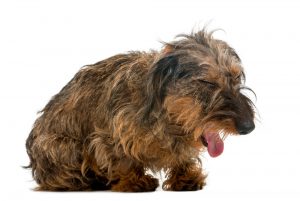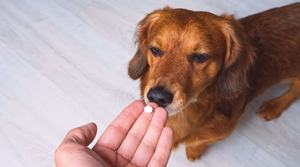As many pet parents quickly discover, dogs can snore as much, and as nosily, as their human family members. But do they snore for the same reasons? Or are dog snores a cause for concern? Do some dogs snore more than others? In short, what is the answer to the question of why does my dog snore?
In very basic terms, there are, as is the case for humans, all kinds of reasons why a dog snores, and some might indeed be a reason to visit a vet.
Here we are going to take a closer look at just why dogs snore, when you, as a pet parent, might need to be concerned, and what, if anything, you can do to quiet their snoring so everyone can get a better night's sleep!
Why Do Dogs Snore?
While there are a variety of reasons why dogs snore, the following are the most common causes:
1. Stuffy Nose
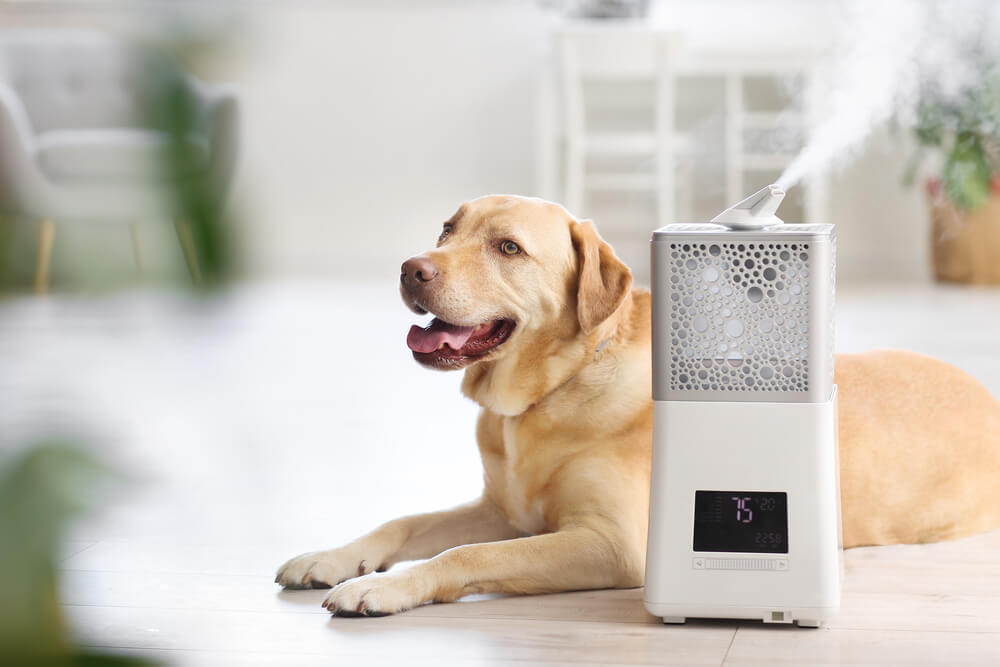
If your pet dog sounds congested when sleeping an air humidifier might help alleviate it and make it more comfortable for your pup.
Rhinitis in dogs affects the nose in the same way that it does in humans. As their mucus membranes get irritated, your pet's nose may become stuffy and runny. If your dog has rhinitis, you may notice sneezing, difficulty breathing, and snoring
Antibiotics can be used to treat this in some cases, but that may not always be the case, your vet will make that decision.
Adding moisture to the air using a humidifier can also help to create a more comfortable and healthier breathing environment for your dog and help quiet those snores.
2. Excess Body Weight
There are lots of reasons you should try your best to help your dog maintain a healthy weight, and preventing snoring is just one of them.
Feeding extra treats and tasty goodies to your dog when she's been good may seem like a wonderful idea, but it could be the source of that noisy breathing. Excess fat can build up in the throat of overweight dogs, obstructing it and causing loud snoring.
3. Allergies
Some humans snore because something in their sleep environment is triggering an allergic reaction, and the same can be true for dogs.
Dust, perfume, or even other pets in the house could cause an allergic reaction in your dog that will make them snore. They could also be suffering from hay fever, which is leading them to snore.
If you think the latter might be the cause, when your dog comes inside after a walk, you can reduce the effects of allergies by rinsing his feet, bathing him with mild shampoo, and dusting off their bedding with a damp towel. You could also consider adding an air purifier to the area where he sleeps, if the snoring is very loud!
You can find safe DIY dog flea shampoo recipes here.
4. Dental Issues
Aside from the fact that they can be very painful, dental problems like cavities, or an abscess can lead to new snoring in dogs. As is the case for humans, dental problems are something that should never be ignored, as something as seemingly simple as an infected tooth can lead to far more serious health problems in dogs than just loud snoring.
How can you tell if your dog has dental plaque? Read more in our post on dental plaque in dogs here.
5. Fungal Disease
Aspergillus is a fungal infection spread by grass clippings, hay, straw, and other dusty things. Mold causes it, and the fungus can get into the dog's nose through the moist lining.
Farm dogs and dogs who spend lots of time outside are the most likely to develop this condition, but as the mold can be found indoors, dogs who spend time in a mold prone basement may be at risk too.
Sneezing, facial puffiness, nasal discharge, and snoring are the most common symptoms. If left untreated, it can become fairly dangerous, although it normally goes away after a course of antifungal medication.
6. Obstructed Nasal Passages
Dogs, like people, snore when the airflow in their nasal passageways or throat is limited. This is often very natural and can be caused by as little as your dog laying on his back as he sleeps rather than on his side. The tongue can slip back towards the throat, obstructing easy breathing and leading to those snores.
Can Dogs Suffer From Sleep Apnea?
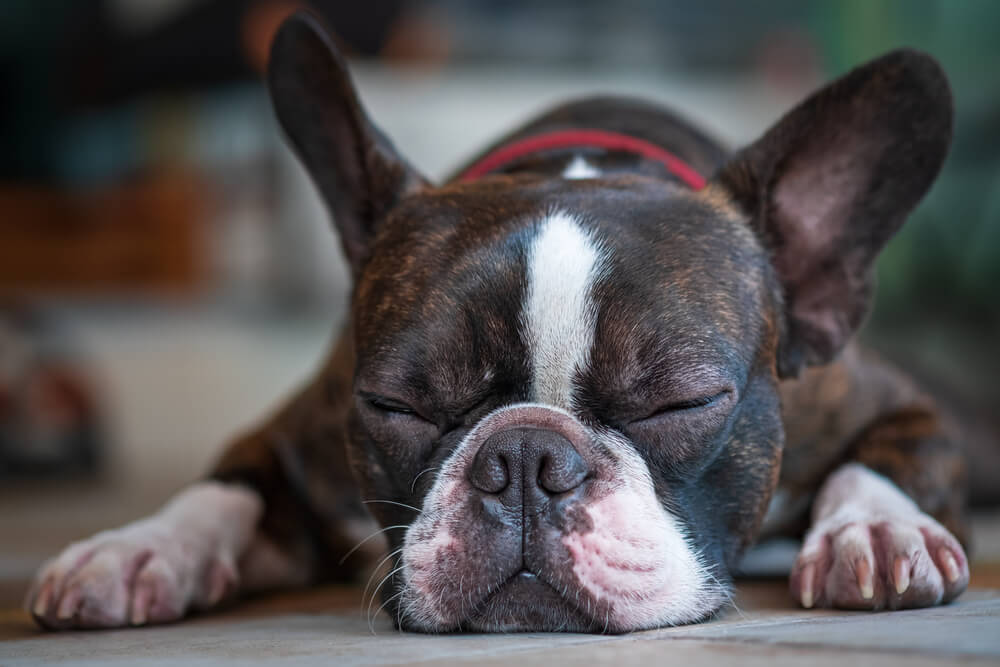
Sleep apnea is another potential, but less likely, reason for your dog's snoring. This condition can affect dogs just like it does humans, but it is much less prevalent in canines than humans.
The respiration of people and dogs suffering from sleep apnea is very shallow, and they may even seem to stop breathing for a brief period of time while sleeping. They frequently begin breathing again with a sharp inhalation that sounds like snoring.
If you suspect your dog has sleep apnea, you should skip all the 'home remedies' you might find on the Internet and have him checked out by his vet. Sleep apnea in dogs can cause big health problems if left unchecked, but the good news is that it can also be managed if and when it is diagnosed.
Dog Breeds That Snore More (& Do All Dogs Snore?)
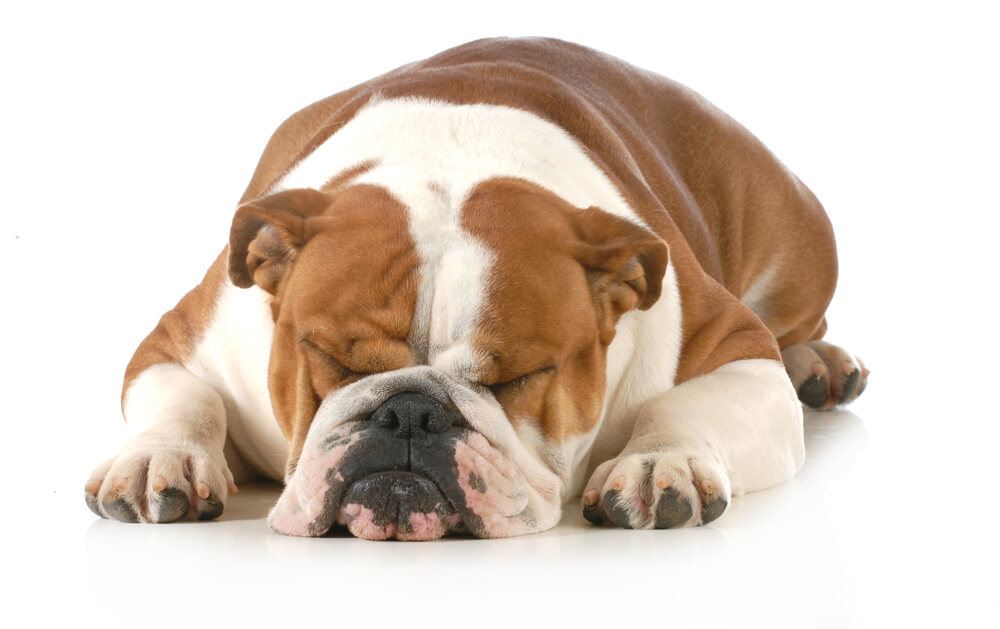
Any and all dogs can snore, for all the reasons we have already mentioned and more, but most vets agree that brachiocephalic dogs - those with short snouts - almost always do, at least some of the time.
Brachiocephalic dogs include all the following dog breeds:
- Boston Terriers
- Boxers
- Bulldogs
- Chihuahuas
- Chow Chows
- Lhasa Apsos
- Pugs
- Toy Spaniels
As lovely as these dogs are, their short noses and flat faces often leave them with a wide range of breathing problems, and they will almost certainly snore at least sometimes.
Don't be too concerned if your stub nosed dog snores and has always snored. This is likely just something you'll have to come to terms with (he won't care, he can't hear it!)
However, you should consult with a veterinarian if you observe any changes in your dog's respiration when they are sleeping or if they appear to be snoring a lot more than they did before.
Some pet parents avoid consulting their vet about their brachiocephalic dog's breathing as they have heard that this will lead to surgery that can sometimes be controversial and expensive. While some short snouted dogs do have breathing difficulties that are so acute, they really do need surgery that's far from always the case.
How to Prevent and Stop Dogs Snoring
Some dogs, like some humans, will always snore sometimes, especially if they belong to a brachiocephalic breed. If you are concerned about your dog's snoring, you should discuss the issue with your vet to rule out a more serious underlying condition.
Sometimes watching your dog sleep can be a little alarming in general. They might shake in their sleep, move their legs like they are chasing something or even make whimpery sounds. In most cases this is all quite normal, and they are dreaming.
Humans move a lot in their sleep too, we just might not realize that about ourselves as we are, well, asleep at the time.
If other health conditions have been ruled out, there are still some things you can do to help stop their snoring.
Here are some simple suggestions for safe 'dog snoring remedies' you can try:
1. Make Sure the Air in Their Sleeping Space is as Clean as Possible
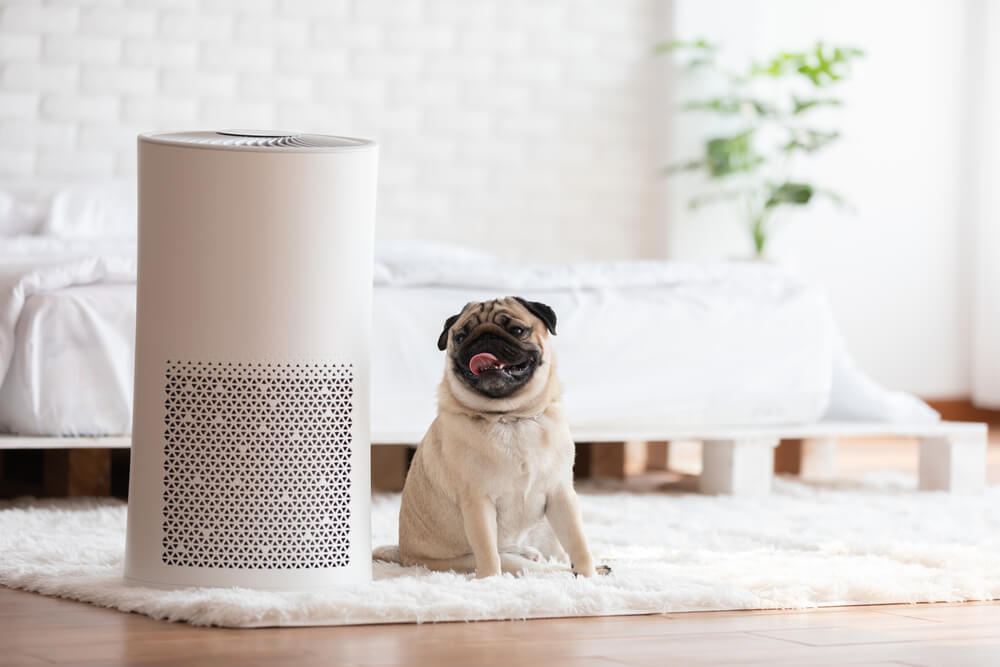
An air purifier helps filter out dust particles from your dog's sleeping environment and can help to stop your dog from snoring.
Most dogs don't have their own rooms to sleep in, but they do usually have their own designated sleep space. Just like you should do in your own bedroom, ensuring that the air in that space is as clean and fresh as possible can significantly cut down on dog snores if they are triggered by allergies.
Easy ways to clean the air in general include avoiding smoke in the house - from cooking as well as cigarettes, cigars and things like candles and incense, dusting and vacuuming regularly, avoiding the use of chemical heavy spray air fresheners, keeping your dogs bedding clean and making sure their sleep space is well- ventilated.
An air purifier might help as well. These are more affordable and unobtrusive than you might think, and a plus here is that both you and your pup will benefit from breathing cleaner air indoors in general, so it's an investment that's rather easy to justify anyway.
One more note here. Extreme temperatures can affect dogs and lead to respiratory issues, including snoring. Try to have them sleep in a place that offers them a standard temperature all night. Experts say that for both dogs and humans a sleeping temperature of between 65- and 67-degrees Fahrenheit is ideal. If you have a puppy, you can find puppy safe temperature guidelines here .
2. Watch Their Weight
As we mentioned earlier, overweight dogs tend to snore. But there are so many reasons why helping your dog maintain a healthy weight is so important, it's something you should never ignore.
As is the case for humans, weight management involves both food and exercise. Not all pups are up to long walks every day - although some really do need them, both for their physical and mental health - but they all need some exercise. Your vet can be a big help when it comes to deciding the right diet and exercise plan for your dog.


